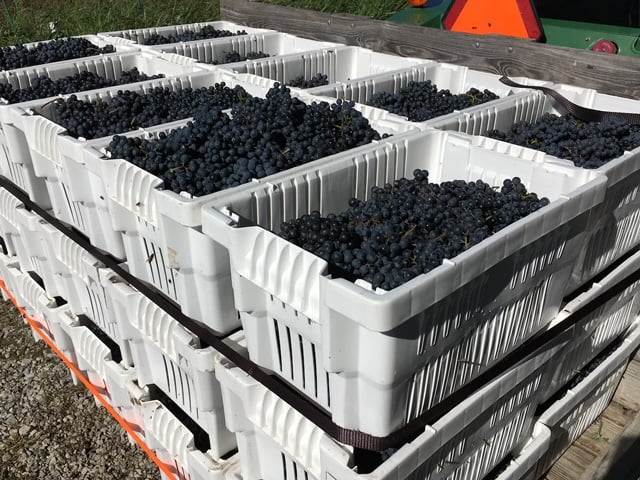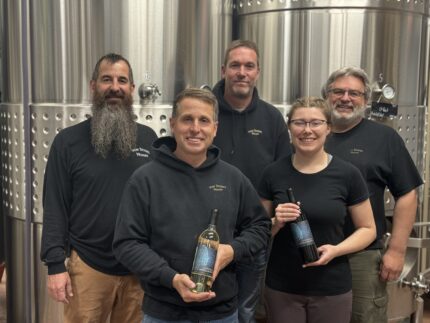The idea started with what appeared to be a simple mission – introducing native grapes back to North American wine. But what happens when no one knows the varietals, the story and the grapes that were once grown here, but forgotten over time? Not the French American hybrids that are better known, but native grapes that are unique and were cultivated here. It’s a mission one man undertook: to start the resurgence of American heritage grapes.
In the Beginning: The People Behind the Grapes
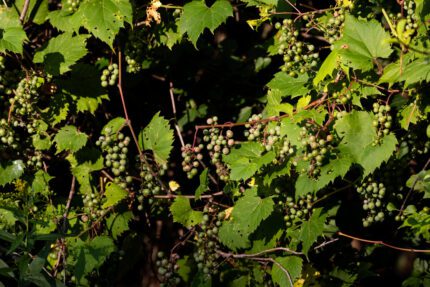
Most of what you drink everyday – like Pinot Noir and Chardonnay for example — comes from European grape varieties, from the species Vitis Vinifera. But there is a group of Native wine grapes in America that are different in how they grow, how they cultivate and how they flourish.
Thomas Volney (T.V.) Munson was an early 1800’s American viticulturist credited with saving the European wine industry from phylloxera, an epidemic facing grapes during the late 1800’s.
Munson had the vision to build a solution that could fight phylloxera by grafting Vitis Vinifera wines on American rootstock. He was a Texas grape grower who had already identified 31 undiscovered grape species, realized they could be grafted on to European varieties and ultimately became known as the leading expert in North American grape species.
He is also the author of Foundations of American Grape Culture, a detailed analysis of grapevines grown throughout the USA from the late 1800’s through 1905. Munson collected and classified grapes native to America, from Nebraska to Missouri and Arkansas down to Texas, his place of residence.
The Return of American Heritage Grapes
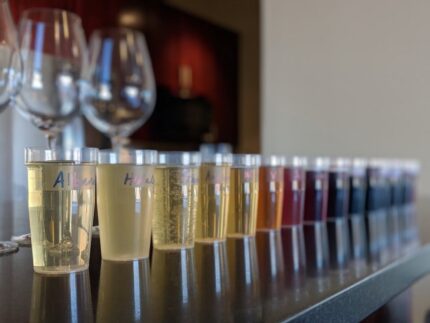
I had a chance to talk to Jerry Eisterhold, the proprietor and founder of TerraVox Wine – which means “voice of the land”. He’s a Missouri farm boy who grew up surrounded by wild grapes in the Gasconade River Valley in Missouri. He went to the University of Missouri and graduated with a degree in agronomy. He also found a passion to really dig into the soil.
His pioneering journey started with a curiosity about American grapes after reading Munson’s book. In 1996, Jerry decided to charter a plane over Kansas City to find the right soil for establishing a vineyard. Determined to discover and become an expert in the unique flavors that American Heritage Grapes bring to wine, Jerry began a journey to create wine that would complement the land and would extend to Oklahoma, Texas, Louisiana, Kansas, Colorado, and New Mexico. TerraVox Vineyards started in Kansas City, Missouri, and it remains dedicated to the cultivation and research of these wild American varieties that have become obscure for more than 150 years.
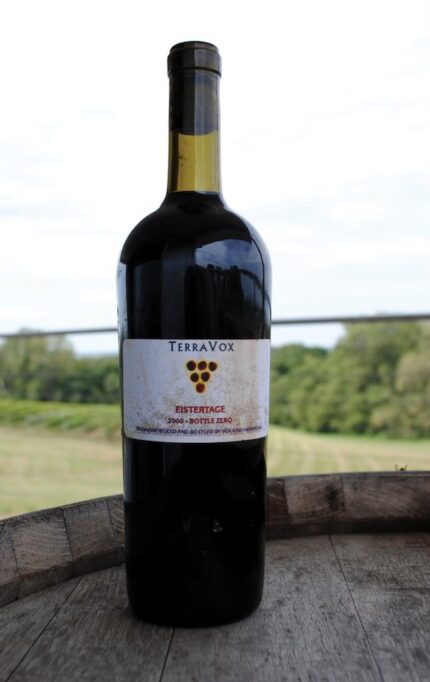
This journey took him on a quest to find vines so he could get cuttings of these obscure grapes that had adapted to their environment despite not being properly maintained. He is a renowned museum designer, and he curates vineyards the same way. He said that Munson created a conversation between the grapes and the land, and it is his mission to preserve it. Production is small — in fact, the entirety of the first harvest was one bottle.
Jerry hired Clark Smith, the founder of Vinovation and an expert in best modern winemaking techniques, as a consultant. Jerry told me he’s another champion of “grapes grown outside the box.”
Native varietals like Albania, Captivator, Cloeta, Hidalgo, Last Rose, Lenoir, Lomanto, Norton’s Virginia Seedling, Volney, Wetumka, Amerbonta, America, Beacon, Delicatessen, Extra, Herbemont, Manito, Muench, Stark-Star, and Wine King. Native grapes that haven’t been cultivated or studied because consumers don’t know about them and names with no context.

TerraVox implements sustainable, ethical and adaptable winemaking practices—and credits Indigenous people for their foundational agricultural philosophies which were erased from history due to several laws forbidding the commercialization of native grapes back in the 30’s. And of course, Prohibition certainly didn’t help. Jerry is dedicated along with his winemaker, Jean-Louis Horvilleur, to raising awareness of the heritage and evolving North America’s native grapes.
And How Were the Wines?
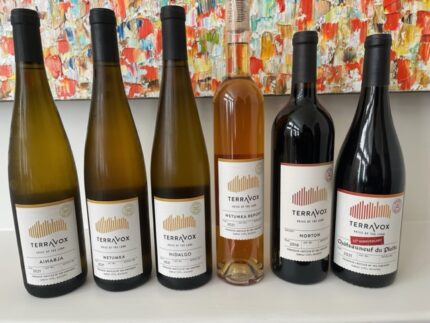
I had the chance to try six of TerraVox’s offerings – 3 white, 2 red and one dessert wine. It was a bit surreal trying wines where I only had past knowledge of one of the five and what a version of this varietal tastes like. I had two favorites, but appreciated the uniqueness, diversity and opportunity to try small production wines from grapes I didn’t even know existed.
2021 TerraVox Albania — This was one of my favorites. It is fermented for a short time and has extended skin contact. It’s aromatic and develops in the glass. This white American heritage grape, Albania, has notes of apple, lemon zest and white flowers. $27
2021 TerraVox Wetumka – lots of notes of tropical fruit, melon, stone fruit and lemon. It had a slight sweetness due to a touch of residential sugar. $27
2021 TerraVox Hidalgo – This wine was aromatic and had notes of baked apple, citrus, butterscotch and had a nice balance to it. It was a very easy drinker and is a cross between the Delago and Brilliant varietals. $35
2021 TerraVox Chateauneuf du Platte — This wine was made of eight varietals including Delicatessen, Lenoir Norton and a field blend of Extra, Xlanta, Manito, Noiret, Long John, Atoka, Lukfata and Neva Munson. $42. It’s a blend of red and white wines. This was another favorite made in an Old-World style. It was juicy and had notes of cherry, pepper, and herbs. $42
2016 TerraVox Norton – this was the only wine that I had experienced in the past in Virginia and it was a nice version of it. It had notes of raspberry, cherry, plum, vanilla, cigar box, and pepper. $55
2021 TerraVox Wetumka RePort – a playful name on a port-style dessert wine. I tasted notes of orange, honeysuckle, almond, melon and pear. $42
When I asked Jerry about the willingness of consumers to try wines that most wine experts have no knowledge about, he told me he was looking for adventurous drinkers. His mission is to design the grapes with an attitude of cultural awareness and identity, make wines that are economically sustainable, and introduce new grapes to other winemakers. He and a very small group of people continue their journey to restart the resurgence of American heritages grapes
